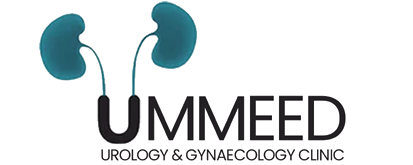Importance Of Prenatal Care In High-Risk Pregnancies
Pregnancy is a remarkable journey marked by numerous milestones and challenges. However, for some women, the journey becomes more complex due to various medical conditions or other factors that categorize their pregnancies as high-risk. In such cases, the significance of prenatal care cannot be overstated. Prenatal care plays a pivotal role in monitoring and managing high-risk pregnancies, ensuring the well-being of both the mother and the unborn child.
To Know More About It Please Click Here
Understanding High-Risk Pregnancies
High-risk pregnancies encompass a wide range of conditions and circumstances that pose potential threats to the health and safety of the mother and the fetus. These may include maternal age (either very young or advanced maternal age), pre-existing medical conditions such as diabetes or hypertension, multiple pregnancies (e.g., twins or triplets), gestational diabetes, preeclampsia, genetic disorders, and lifestyle factors such as smoking or substance abuse.
The Importance of Prenatal Care
Prenatal care involves regular check-ups, screenings, and interventions provided by healthcare professionals throughout pregnancy. In the context of high-risk pregnancies, prenatal care takes on added significance for several reasons:
Early Detection and Management of Complications
Regular prenatal visits allow healthcare providers to closely monitor the mother’s health status and identify any potential complications early on. This proactive approach enables timely interventions and management strategies to mitigate risks and optimize outcomes.
Monitoring Fetal Development
Prenatal care involves various screenings and diagnostic tests to assess the growth and development of the fetus. In high-risk pregnancies, monitoring fetal well-being becomes particularly crucial to identify any signs of distress or abnormalities that may require specialized care or interventions.
Tailored Treatment Plans
Each high-risk pregnancy is unique, and prenatal care provides an opportunity for healthcare providers to develop personalized treatment plans tailored to the specific needs of the mother and the fetus. This may involve medication management, dietary modifications, lifestyle counseling, or referral to specialist services as deemed necessary.
Education and Support
Prenatal care offers an invaluable platform for educating expectant mothers about their condition, potential risks, and self-care measures they can take to promote a healthy pregnancy. It also provides a supportive environment where women can voice their concerns, ask questions, and receive guidance from healthcare professionals.
Reducing Adverse Outcomes
Research has consistently shown that adequate prenatal care significantly reduces the risk of adverse outcomes in both low-risk and high-risk pregnancies. By closely monitoring maternal and fetal health, addressing any complications promptly, and providing appropriate interventions, prenatal care can help minimize the likelihood of preterm birth, low birth weight, birth defects, and maternal morbidity and mortality.
Conclusion
In high-risk pregnancies, prenatal care serves as a cornerstone of comprehensive management, offering a lifeline of support and surveillance for expectant mothers and their babies. By facilitating early detection, tailored interventions, and ongoing monitoring, prenatal care plays a vital role in optimizing outcomes and ensuring the best possible health for both mother and child. As such, prioritizing access to quality prenatal care for all pregnant women, especially those with high-risk pregnancies, is essential in safeguarding maternal and fetal well-being.
Also, Follow us on Instagram







